The imminent presidential election is having an impact on Americans’ mental health.
A recent national survey by AMFM, a residential mental health treatment system based in California, analyzed the anxiety levels of 2,000 Americans during an election year.
Nearly 22% of the respondents reported that election coverage was having a negative effect on their mental health.
ELECTION CONCERNS LEAD TO SHOCKING BAN AT FALL WEDDING
Navigating misinformation (57%) and “doom and gloom” messaging (56%) were identified as key stressors, as well as concern about the election’s aftermath (54%) and worry that their candidate of choice would not win (42%).
Overall, 30% of respondents reported increased anxiety related to the election, 22% said they felt overwhelmed and 18% experienced anger.
A young man watches the incoming election results on the giant screens of Times Square in November 2016. (David Cliff/SOPA Images/LightRocket via Getty Images)
Almost 53% said they avoid election-related conversations to prevent anxiety.
More than 73% of respondents have not sought support for election-related anxiety – and don’t plan to, they said.
AS ELECTION NEARS, STRESS EATING NEEDS A SHARP EYE: ‘IT’S DESTRUCTIVE BEHAVIOR’
AMFM concluded that it is crucial for individuals to “seek balance, limit their exposure to anxiety-inducing content, and consider seeking support when needed.”
Another survey by LifeStance Health – a mental health care network headquartered in Scottsdale, Arizona – found that the presidential election is a “significant source of stress and anxiety” for Americans.
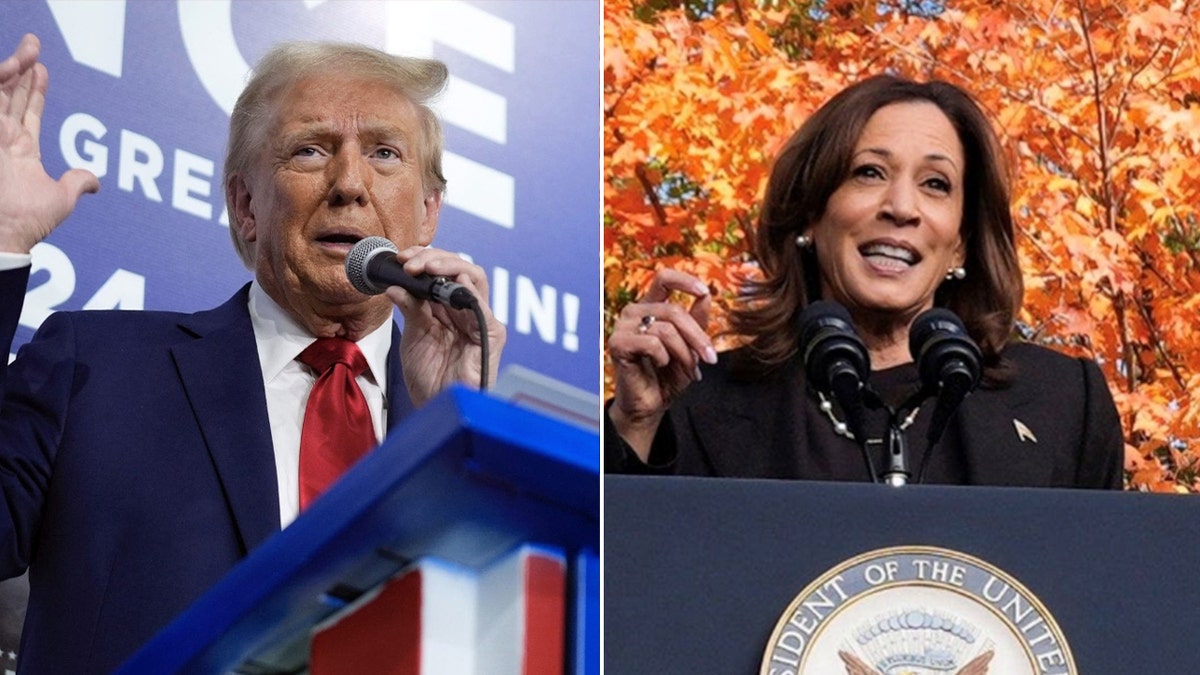
In one survey, respondents indicated that navigating misinformation (57%) and “doom and gloom” messaging (56%) were key stressors, as well as concern about the election’s aftermath (54%) and worry that the preferred candidate would not win (42%). (AP Images)
The survey, which polled over 1,000 Americans online in August 2024, found that 79% of people experience election anxiety.
Younger Americans are more likely to be affected, the results showed, including 64% of Gen Z and 54% of millennials.
HEART ATTACKS MORE LIKELY DURING PRESIDENTIAL ELECTIONS AND OTHER STRESSFUL TIMES, STUDY SHOWS
More than half (57%) of respondents said they think about the election daily, while 31% said they think about it multiple times a day.
Meanwhile, 44% of Gen Zers have postponed major milestones in their lives such as moving, going to college, getting married or having kids because of anxiety about the political climate.
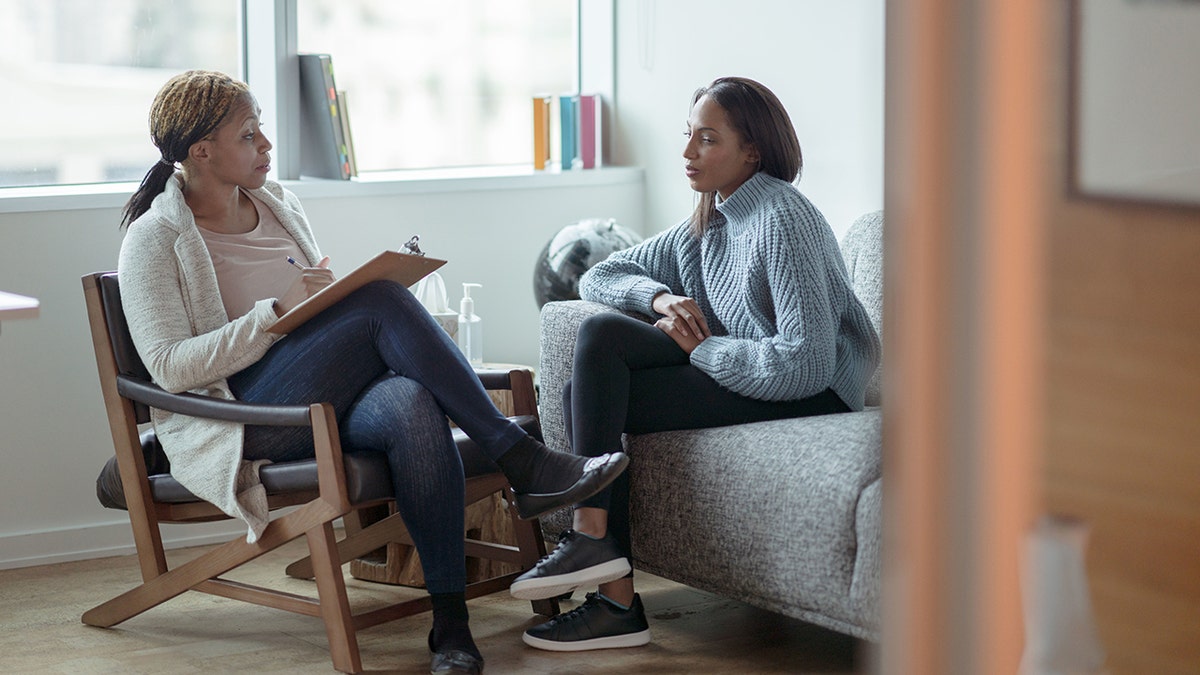
Nearly two-thirds of respondents speak with therapists about politics and the election, the LifeStance survey found. (iStock)
This anxiety is also driven by friends and family, as 44% of respondents said political or election-related discussions have led to conflicts.
More than two-thirds (72%) of respondents said social media and other news coverage contribute to their election anxiety, while 34% admitted to unfollowing or blocking a friend or family member on social media due to their political views.
Alleviating election anxiety
Some mental health experts refer to political-related anxiety as “election stress disorder,” according to MK Clarkin, a licensed clinical social worker and executive clinical director at LifeStance Health in St. Louis, Missouri.
“People often report increased anxiety, depression, trouble focusing and more,” she told Fox News Digital. “Feeling a deep sense of losing control over personal lives understandably creates a sense of distress for many people.”
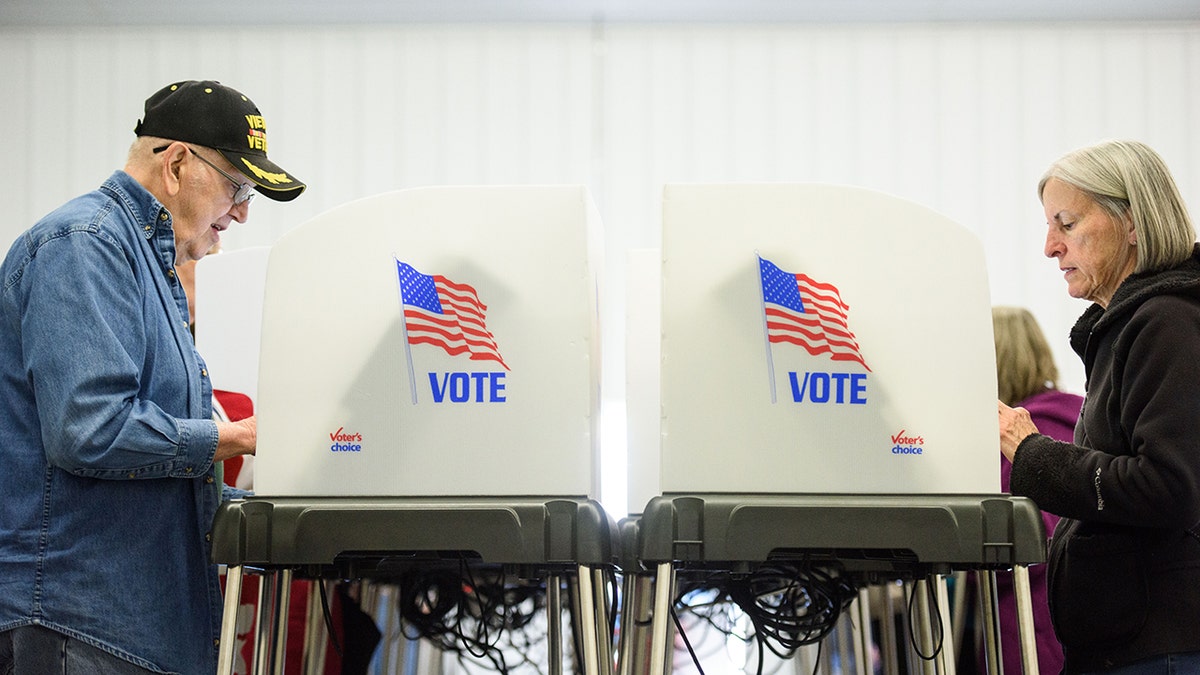
Voters make their selections at voting booths on Oct. 17, 2024, in Hendersonville, North Carolina. (Melissa Sue Gerrits/Getty Images)
Experts shared a few coping methods to help keep your mental health in check through the election.
6 tips to calm down
1. Practice grounding techniques
Christina Kayanan, a licensed therapist in California and executive director of AMFM, suggested practicing grounding techniques, such as the 5-4-3-2-1 method, to help bring your focus away from worrying about the future and back to the present.
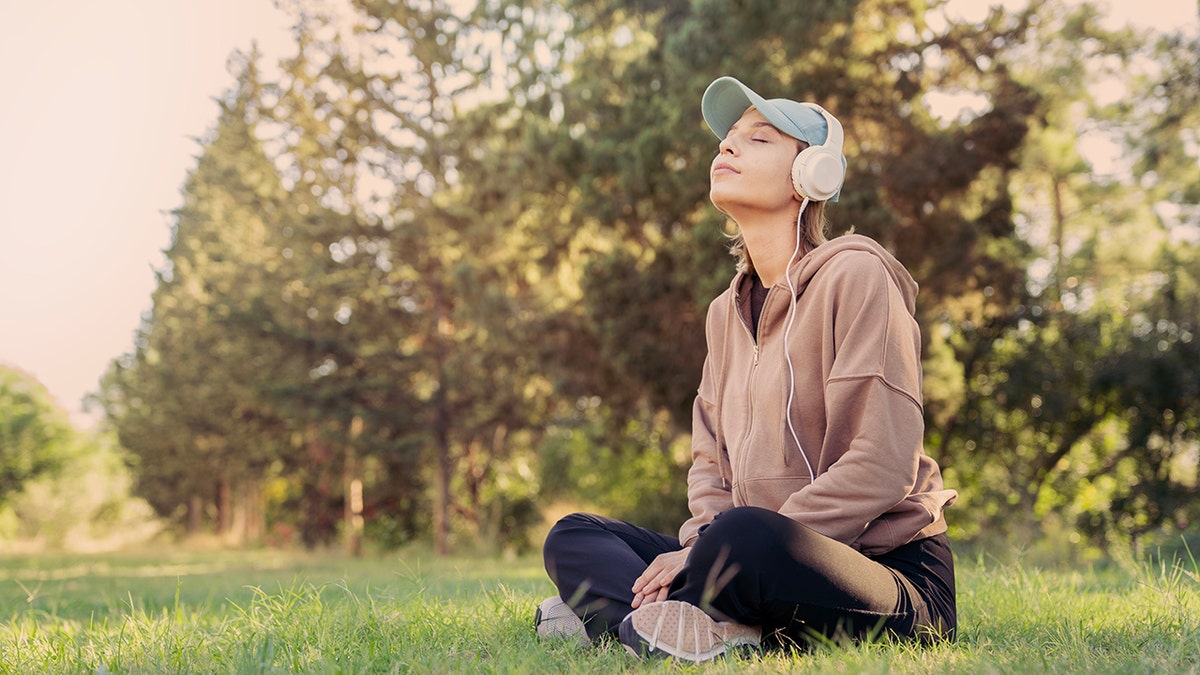
An expert encouraged building a self-care routine and practicing grounding techniques to reduce anxiety. (iStock)
“In this exercise, you acknowledge five things you can see, four things you can touch, three things you can hear, two things you can smell and one thing you can taste,” she shared with Fox News Digital. “Grounding can disrupt anxious thought patterns and restore a sense of control.”
2. Build a self-care routine
Building a self-care routine, including mindfulness, meditation, exercise and deep breathing, can help calm the nervous system, according to Kayanan.
“A routine helps structure your day, giving you something predictable to rely on,” she said. “Even small, consistent habits, like journaling or taking short walks, can make a significant difference in managing anxiety.”
3. Challenge unhelpful thoughts
Unhelpful thoughts can include “all-or-nothing” thinking and catastrophizing a situation, which Kayanan noted can intensify anxiety.
People should edentify these thought patterns and challenge them with “evidence-based thinking,” the expert suggested.
For more Health articles, visit www.foxnews.com/health
“Ask yourself, ‘What evidence do I have for this thought? Is there another way to look at this situation?’” she advised.
“By reframing anxious thoughts, you can reduce their emotional impact and regain a sense of balance.”
4. Limit caffeine and alcohol
Both substances can make anxiety symptoms worse by overstimulating the nervous system and impairing our “natural ability” to manage stress, according to Kayanan.
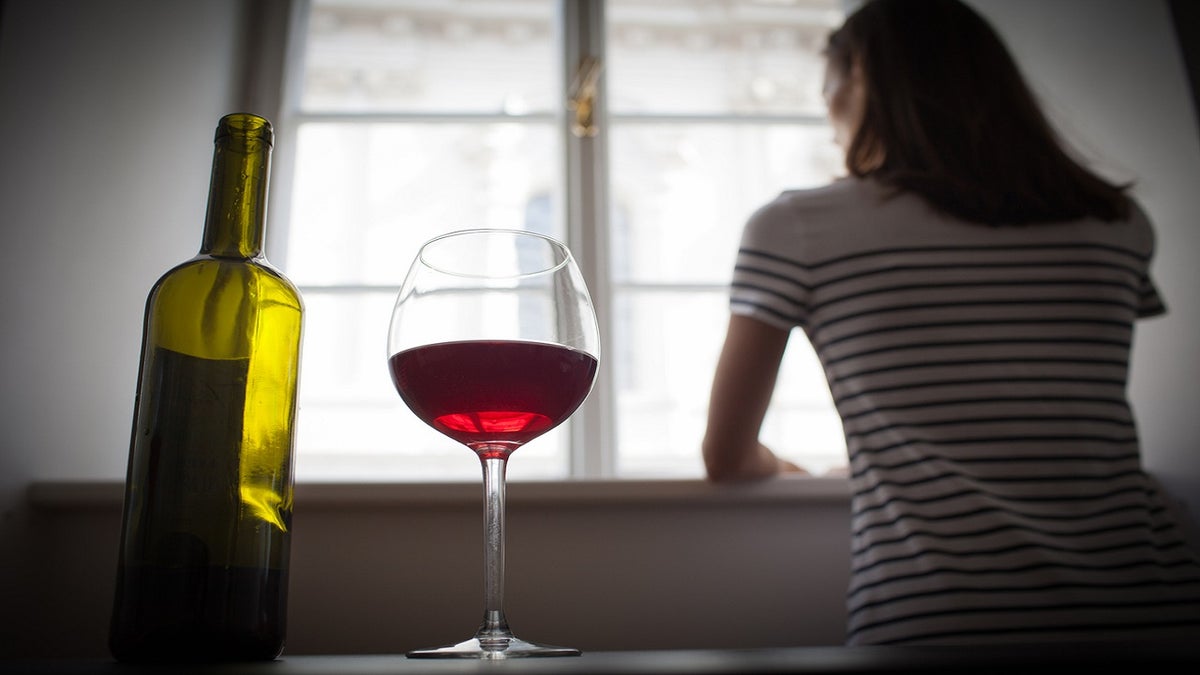
Alcohol and caffeine can make anxiety symptoms worse by overstimulating the nervous system, experts warn. (iStock)
Reducing these substances could help decrease physical anxiety symptoms and help maintain a “more balanced emotional state,” the expert said.
5. Set healthy boundaries
Kayanan promoted setting clear boundaries in relationships, work or social settings to reduce anxiety.
This might include saying no in certain situations, delegating tasks and setting limits on social media to prevent overstimulation and burnout.
CLICK HERE TO SIGN UP FOR OUR HEALTH NEWSLETTER
These boundaries can also apply to election-related content, which Clarkin advised people to “be selective” about.
“Don’t be afraid to set boundaries around your digital consumption — set a ‘screen time’ limit, mute or unfollow accounts that share harmful content, and fact-check sources,” she advised.
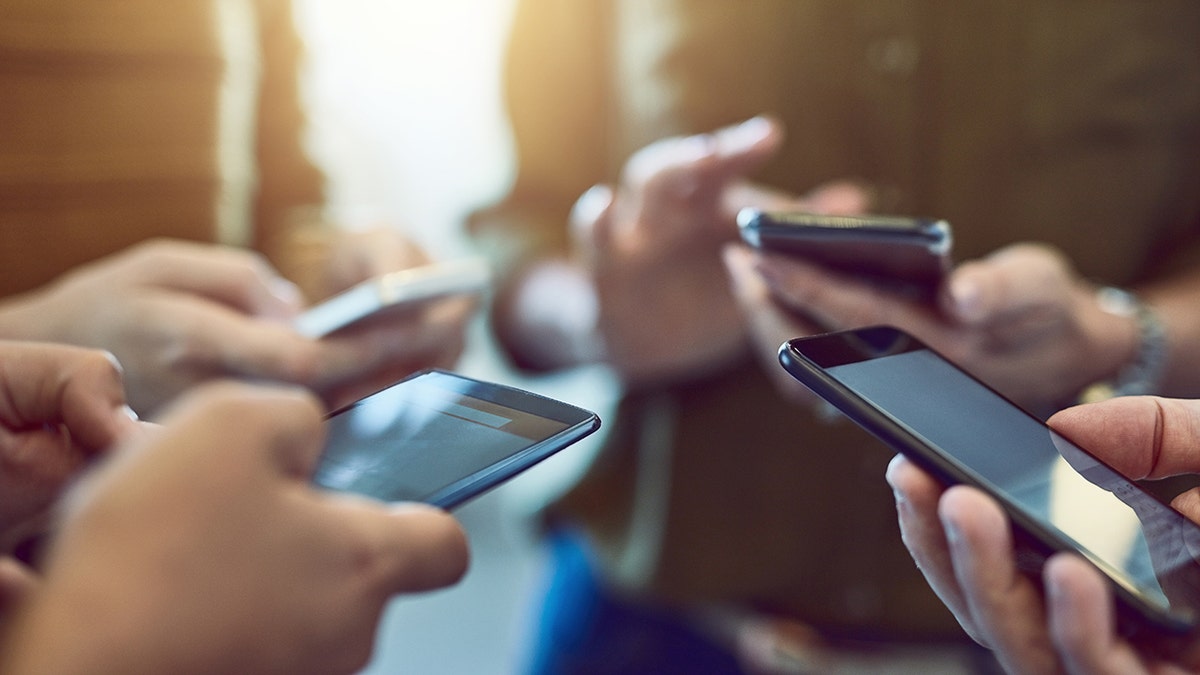
“Most people do not post political content with the intention of having their minds changed via dialogue,” one expert said about engaging in social media discussions. (iStock)
Clarkin also discouraged engaging in political discussions on social media.
“Most people do not post political content with the intention of having their minds changed via dialogue,” she said.
“So your energy is better spent on something else.”
6. Try progressive muscle relaxation
Progressive muscle relaxation (PMR) is a method that involves tensing and slowly relaxing different muscle groups “from your toes to your head,” Kayanan said.
CLICK HERE TO GET THE FOX NEWS APP
The technique can help relieve physical tensions associated with anxiety, while increasing awareness of where you might be holding stress in your body.
“Practicing PMR can lead to greater relaxation and reduce overall anxiety levels by promoting a connection between body and mind,” she said.
Those who experience worsening anxiety or ongoing anxiety should reach out to a medical professional for help.





